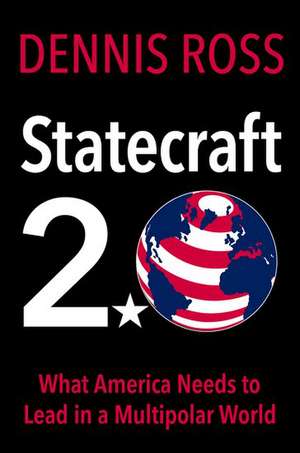Statecraft 2.0: What America Needs to Lead in a Multipolar World: Bridging the Gap
Autor Dennis Rossen Limba Engleză Paperback – 8 mai 2025
Preț: 180.04 lei
Nou
Puncte Express: 270
Preț estimativ în valută:
34.46€ • 37.45$ • 28.97£
34.46€ • 37.45$ • 28.97£
Carte disponibilă
Livrare economică 31 martie-14 aprilie
Preluare comenzi: 021 569.72.76
Specificații
ISBN-13: 9780197698921
ISBN-10: 0197698921
Pagini: 496
Dimensiuni: 103 x 97 x 35 mm
Greutate: 0.62 kg
Ediția:2
Editura: Oxford University Press
Colecția OUP USA
Seria Bridging the Gap
Locul publicării:New York, United States
ISBN-10: 0197698921
Pagini: 496
Dimensiuni: 103 x 97 x 35 mm
Greutate: 0.62 kg
Ediția:2
Editura: Oxford University Press
Colecția OUP USA
Seria Bridging the Gap
Locul publicării:New York, United States
Notă biografică
Dennis Ross served in senior national security positions as a political appointee for Ronald Reagan, George H.W. Bush, Bill Clinton, and Barack Obama. He played a prominent role in shaping American policy toward the former Soviet Union, working out German unification in NATO, developing the Gulf War coalition, putting together the Madrid Peace Conference, negotiating between Arabs and Israelis as the chief American envoy, and later helping to formulate American approaches toward Iran. After his formal governmental stints, he has been an active participant in track two diplomatic efforts and discussions. He is a frequent commentator in the media on the Middle East and other international hotspots. Ross is presently the Davidson Distinguished Fellow at the Washington Institute for Near East Policy and a Distinguished Professor in the Practice of Diplomacy at Georgetown University.












